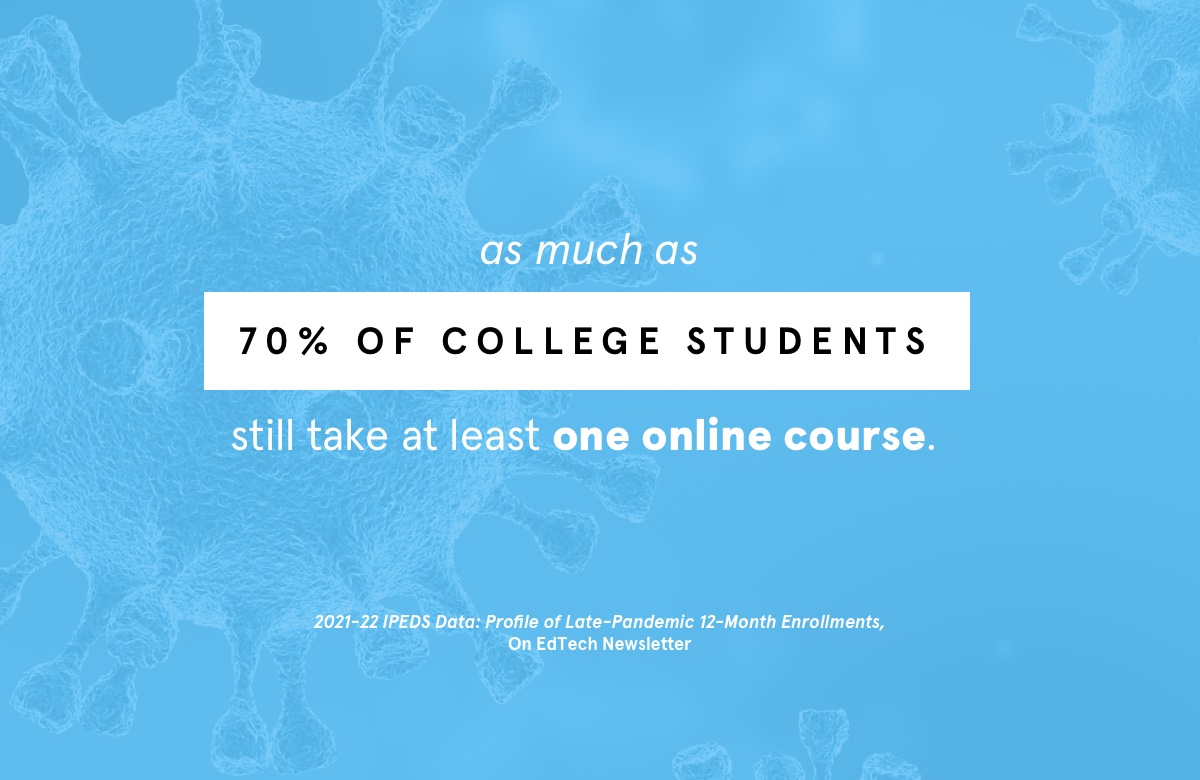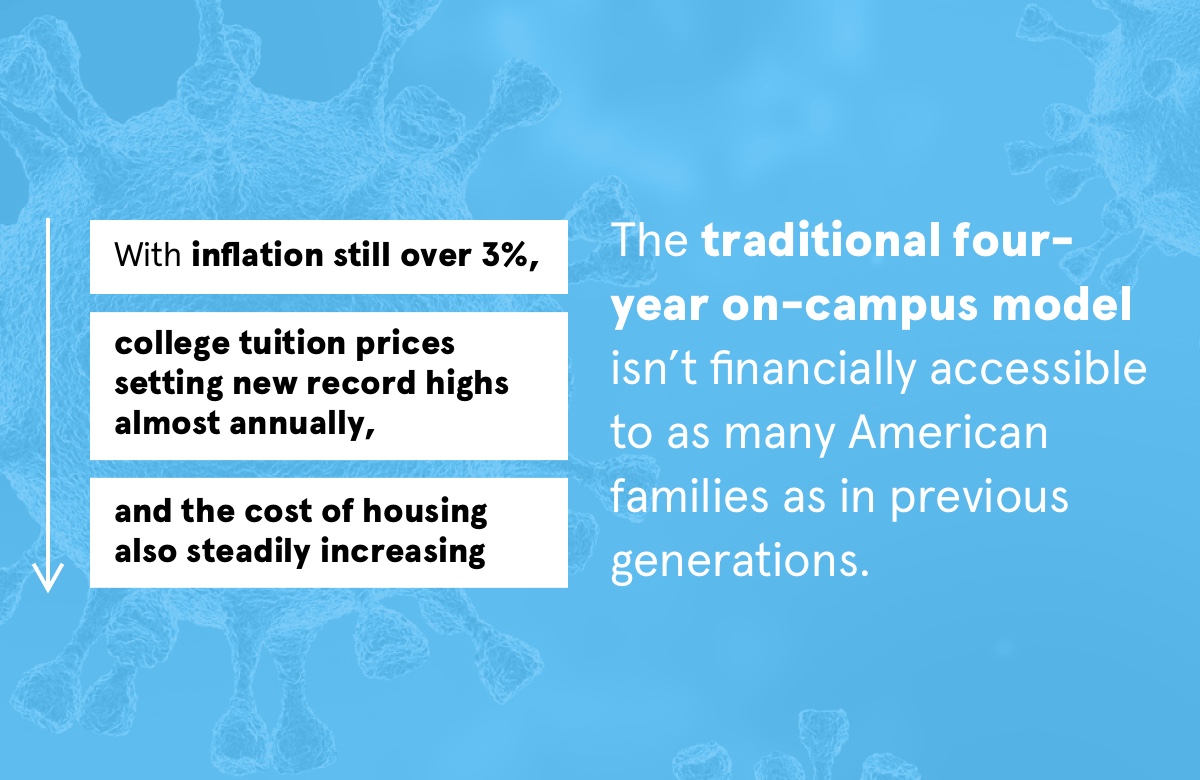The COVID-19 pandemic is thankfully in the rearview mirror, at least for now. Most of the roughly 4,000 U.S. colleges and universities have welcomed students back to campus for the better part of three years after locking down and moving classes online to help stop the spread of the virus in 2020.
Yet, despite being able to return to campus, a growing number of students have continued to work online — as much as 70% of college students still take at least one online course. Combine that trend with the fact that the American high school population is shrinking and that more families than ever are thinking twice about whether a college education is worth the cost, and you’re left with the current climate of at least one university merging or closing its doors for good every month on average.
Student demand for universities can vary greatly based on the ranking and prestige of the school. Ivy leagues and top public schools are seeing record application numbers from both home and abroad, while second-tier state universities and lower-ranked liberal arts colleges are cratering. The latter comes from students deciding they’re better off getting a job, pursuing a trade school or teaching themselves new skills via the internet instead of going into debt for all-time high tuition costs with no guarantee of a future career.










